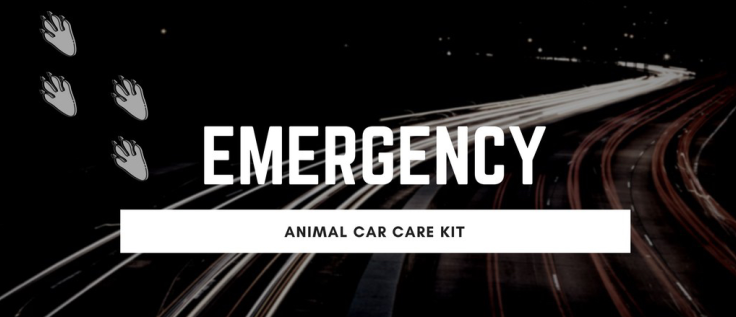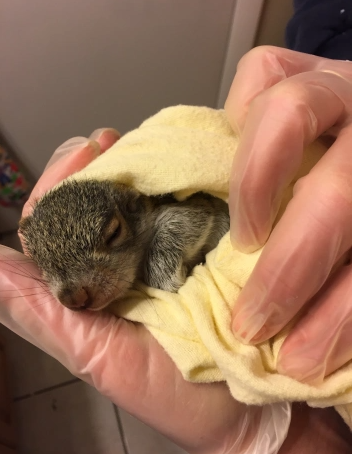Emergency Animal Car Care Kit
With just a few things from your home, you can make sure you’re prepared for an animal situation. Just like keeping a first aid kit in your car, it is a smart idea to be prepared for coming across an injured or orphaned animal. Even helping a turtle cross the street can be made a less stressful situation with a small wildlife kit!
In order to prevent injury to yourself or the animal, focus on staying calm and seek the guidance of a licensed wildlife rehabilitator.
We’ve put together a few items you likely have around your house for your Emergency Wildlife Rescue Kit:
Gloves: Latex and or garden gloves help to keep you safe when handling an animal.
Flashlights: This will come in handy for those after dark encounters.
Blanket: Blankets are good for capturing animals and also keeping them warm when in transfer. It is important for the fabric not to be looped, like terry cloth, because toes and nails can get caught, causing more injury.
Hand Warmers: Disposable hand warmers are a good source of heat. Orphans who have been separated from their mother may not be old enough to keep a constant body temperature. Never put a heat source directly against an animal. Be sure there is an area where they can crawl away from the heat if they are too warm.
Cardboard Box: Use the box to store your kit and transfer an animal. Make sure the lid is securable because you would not want the animal getting loose in your vehicle.
Emergency Numbers: Do you know who to call if you find an animal? Some towns have Animal Control officers that are able to help.
There is a free app that you can install now that will direct you to wildlife rehabilitators close to your current location.
Download Animal Help Now (AHNow) before you need it.Most states will post a list of their licensed wildlife rehabilitators on their web site. Rehabilitators are licensed by species so you will want to find someone to help the specific animal that you have come across. Remember that rehabilitators are volunteers and not funded by state of local governments. Print or save phone numbers before you need them so you do not have to spend time searching for whom to call!
An animal needs a dark, quiet, and warm space when being transferred to the care of a rehabilitator.
Please do not give the animal water or food.
Send us pictures of your Emergency Wildlife Rescue Kit and share this page with friends who should make their own!



